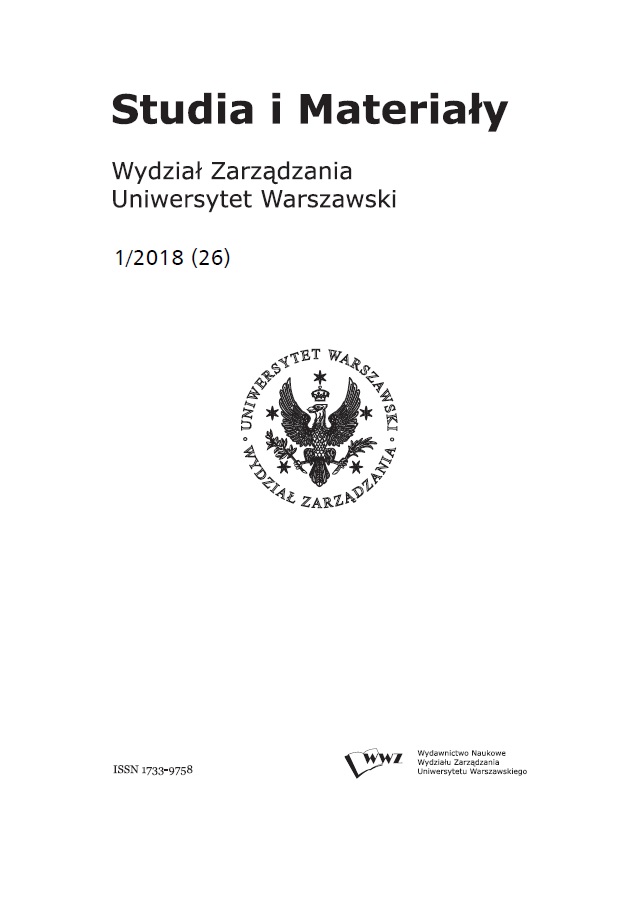Postawa przedsiębiorcza i osobowość jako czynniki indywidualne przywódczych preferencji zawodowych wśród kobiet i mężczyzn
Entrepreneurial Attitude Orientation and Personality Individual Factors of Leadership Vocational Interests in Women and Men
Author(s): Dominika OchnikSubject(s): Business Economy / Management
Published by: Wydawnictwo Naukowe Wydziału Zarządzania Uniwersytetu Warszawskiego
Keywords: leadership; vocational interests; gender differences; personality; entrepreneurial attitude
Summary/Abstract: The aim of this study is to reveal individual factors (personality and entrepreneurial attitude orientation) of leadership vocational interests with regards to age and gender. The research is based on Contextual Model of Vocational Interests and consists of 3 studies. In Study 1, leadership vocational interests were measured by Vocational Potential Inventory across age and gender within 9359 participants (M = 3995, F = 5 364) in the age ranging from 20 to 54 (Mage = 29). Study 2 shows personality dimensions (NEO-FFI Costa & McCrea, 1992) as predictors of leadership vocational interests within 190 participants (M = 72, F = 118). Study 3 refers to relations between entrepreneurial attitude orientation (EAO, Robinson, Stimpson, Huefner i Hunt, 1991) and leadership vocational interests among 98 participants (M = 35, F = 63). Two-way Anova (gender x age) in Study 1 showed significant effect for gender, with men scoring higher in leadership vocational interests. The effect of age was significant in menonly, the older they were the higher leadership vocational interests they presented. Regression analyses in Study 2 showed high conscientiousness, low neuroticism and high extraversion as predictors explaining leadership vocational interests in 31%. Regression analyses in Study 3 revealed that high entrepreneurial attitude orientation and being a man are predictors explaining leadership vocational interests in 13%. The results are discussed within Contextual Model of Vocational Interests and the concept of vocational social clock.
Journal: Studia i Materiały
- Issue Year: 26/2018
- Issue No: 1
- Page Range: 105-116
- Page Count: 12
- Language: Polish

